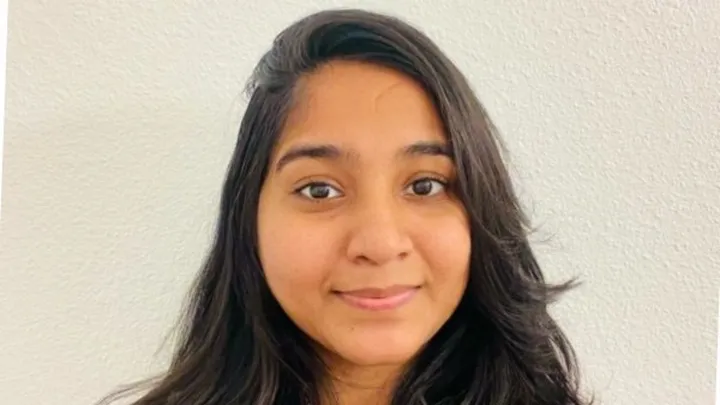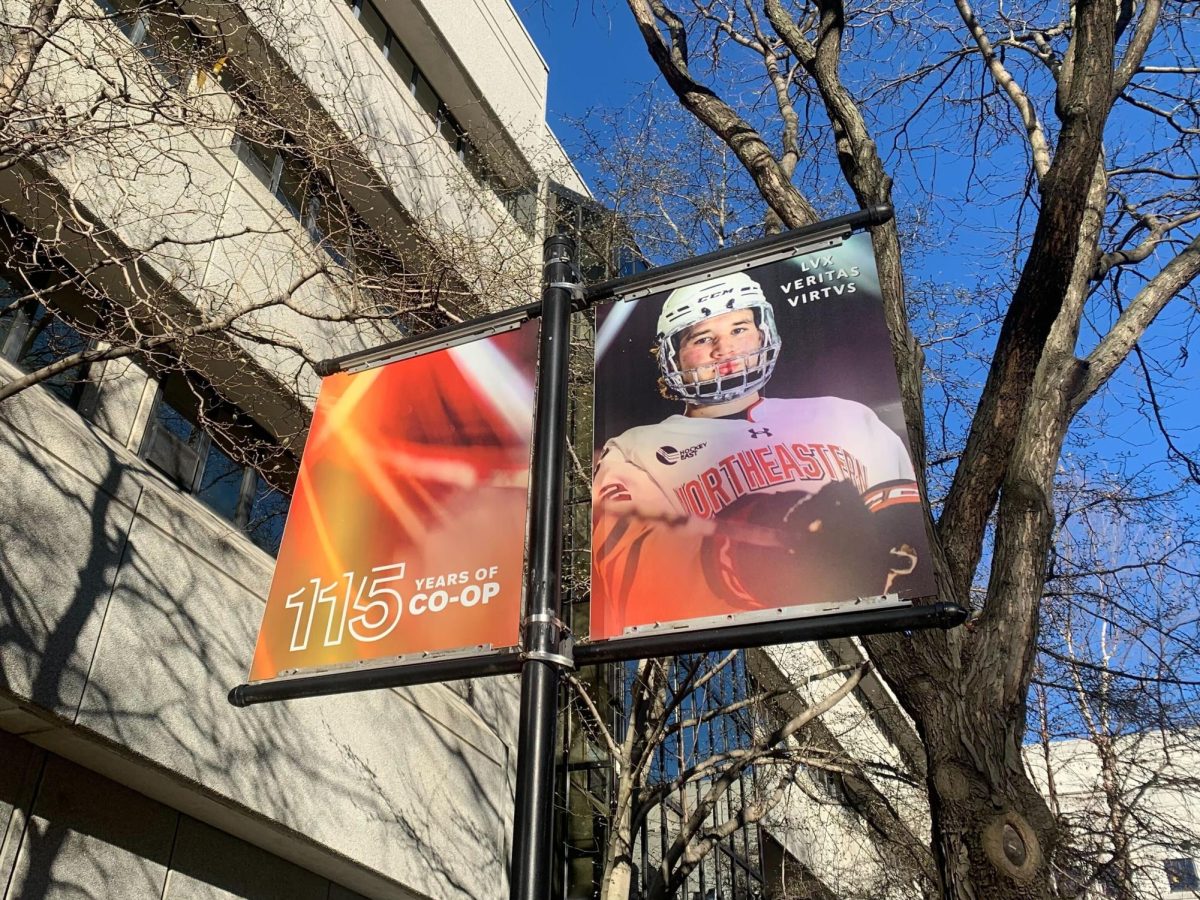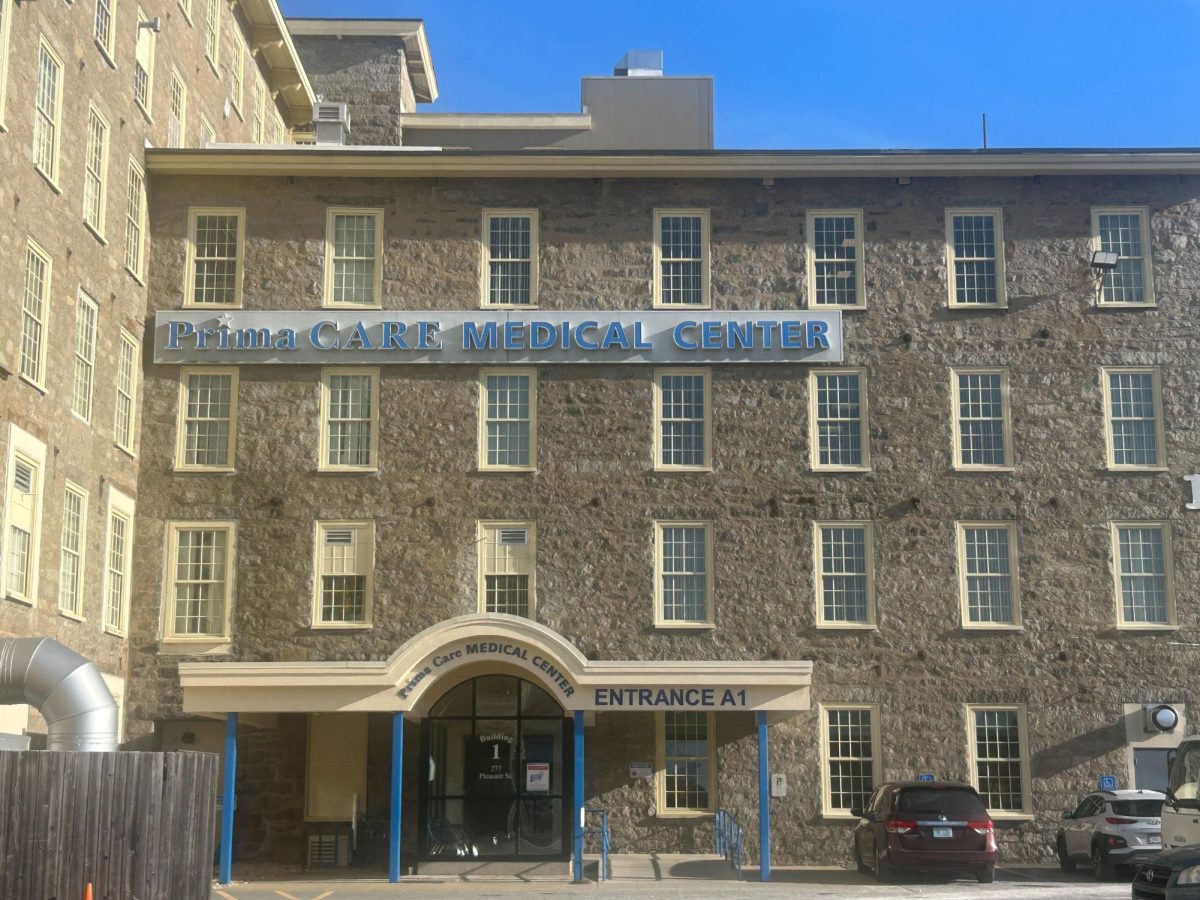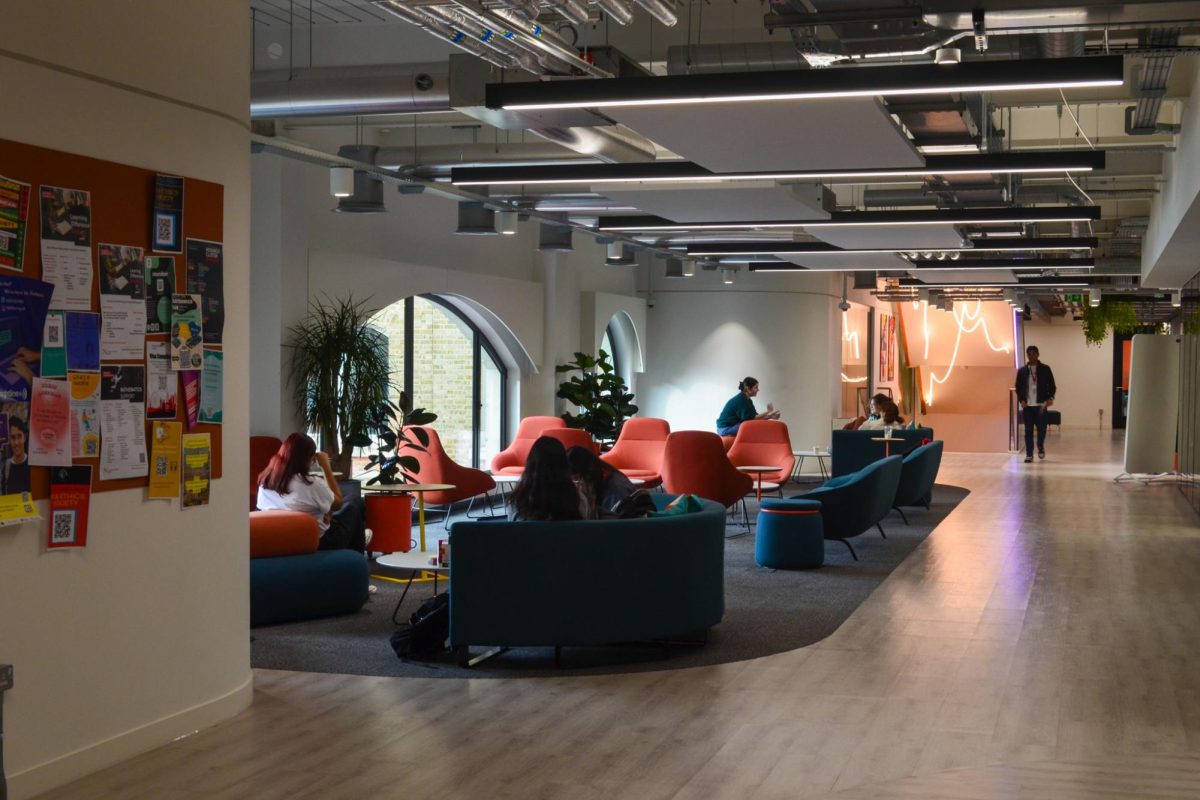By Elizabeth Levi, News Correspondent
Huntington News: How did you first get involved with SGA and why?
Noah Carville: I first got involved with student government my freshman year – I think it was about October – mostly because I just wasn’t able to click with any student group. I kind of floated around between a couple, but then as soon as I got into Senate and into committees, that’s the time where I found a lot of people that felt and thought and acted the same way as me.

HN: What past positions have you held and how will that prepare you for your role as president?
NC: I don’t have a technical position right now – I’m in New York City on co-op right now. I meet with and talk with people from SGA pretty much on a daily basis, but I don’t have a senator position or board member position right now. I started out as a senator and a board member on the Student Involvement Board and then after the end of my freshman year, I knew that I wanted to get involved more, specifically with a focus on membership. My freshman experience was good but there were a lot of humps at the beginning of it, not really knowing anybody, not really being integrated well into the broader SGA experience, and so I wanted to change that. I became chief of staff, which is charged with improvement, retention and then a bunch of administrative stuff that’s really boring. After that I was Chief of Staff for a year, and then I became the work study/office manager this past fall and now I am in New York, President Elect.”
HN: Why did you want to become president?
NC: I saw what Nick (the current SGA president) was doing with student government this year, and I’ve seen the whole way it has been handled in the past and I wanted to make sure that the upward trajectory that it is on this year continued in that direction. Nick has done a lot of great things: reaching out to student groups, continuing conversations because one of the things we got hit with my freshman year was ‘Oh, the only time that we hear from you guys is right before elections because you need something from us because you need our vote.’ But what Nick has done very successfully this year is create a constant dialogue between various student organizations and administrators so that we’re really going to do something good with those relationships going forward. I want to continue that. Then building off of that, every time that you tell someone that you’re in SGA, the answer is ‘Oh, SGA!’ or ‘Oh, SGA? What do you guys do?’ because nobody really knows what their student government does for them and that’s what I want to provide the answer for.
HN: What is your favorite part about Northeastern?
NC: For fear of sounding hopelessly trite: co-op. Co-op is absolutely the best thing about Northeastern both in the sense that you get to work and get paid and not have homework and get your weekends free. But more importantly, co-op has led me down paths that helped me figure out what is right for me, what is wrong for me. I started off as a political science major and then I realized that I do not like politics, politics is not for me, and I did that through working for six months at the State House … With each internship/co-op experience, I’ve had the ability to hone my interests and you know I’m going to be a better graduate because of it.
HN: What past projects do you want to see continued into next year?
NC: When I took on the role as chief of staff, my focus was membership, specifically that that. first year or first semester at SGA because a lot of the time its freshman who are just starting out in college too, so it’s an entirely new experience. I started a program called STEP, it was the Senators Training and Education Program and basically it brought together all the new people and it integrated them with all the senior members of the student government so that they felt comfortable around them, they knew what everybody was responsible for. Also, we got to play some fun games and do some team building exercises that got everybody to know each other. It was a great experience, it was really well received and it’s still continuing to this day – we just finished our fourth session. Clearly, it made a mark on student government and it’s definitely something I want to continue moving forward.
HN: What new projects do you want to begin for next year? What major changes can the student body expect?
NC: Well there are always major changes, some foreseen and some unforeseen. In terms of things I really want to see through, first and foremost, I want to ensure that there is discussion out of this Divestment Referendum. We saw, I think it was over 2,600 students voted in support of the divestment movement. That’s nothing to just swipe away and say that’s just a fringe movement. That’s a significant chunk of student body, and I think that that warrants a discussion with the administration and the way sometimes the administration doesn’t always act as much upon student ideas as those ideas might deserve. That’s very, very high on my list, because SGA is accountable for that now. We had the referenda, we put it on the ballot and now we are just as much as responsible as seeing it through just as much as DivestNU is. I also really want to look into creating a student-student textbook exchange. Syracuse just implanted this program into their university bookstore, and the bookstore was actually happy to provide this exchange so they could save students money, the money would stay within the Northeastern family so that Northeastern students are better off because the money is not going to the University of Georgia or wherever and you don’t have to rely on shady Facebook back alleyways or Craigslist or anything like that. Lastly, this is near and dear to my heart because as soon as I saw how many other colleges and universities have this program and we don’t, and how global and entrepreneurial we say we are, a universal readership program that provides free access to the New York Times, the Wall Street Journal and USA Today. There are so many places that do it. Other places do it completely free of charge, other places like Carnegie Melon give it for a $5 fee that every student pays – it’s only five bucks and it gives you universal access to the New York Times, Wall Street Journal and USA Today. The huge value is that it is essential to living in the modern age: having both a conservative and a liberal perspective on global events.
HN: How do you want to give back to the Northeastern community?
NC: What my time at Northeastern has made me realize is that the people around you at Northeastern – the other students, the graduate students, the faculty advisors and mentors – there are so many people here with phenomenal ideas. They are great for motivation. They are great for guidance. They’re great for mentorship. They’re great for connections, and the more options that we can give these individuals and get those ideas and then take action on those ideas, we’re doing a service to those individuals but also to the broader Northeastern community, and also to ourselves. Everybody benefits when those ideas are heard and acted upon. I know that that sounds broad, but that’s what my position calls for and that’s what I’m going to pursue every single thing.
HN: Where is your favorite place to eat on campus?
NC: Pavement Coffeehouse by far. I’ve had everything on their menu. I love those people. That place has so much character.”
HN: Do you have any embarrassing moments to share?
NC: One time I accidentally pronounced the student work study dead in Senate in front of 40 people and they all looked shocked and horrified at what I had said, which I completely didn’t mean. As the chief of staff, you’re in charge of work-study – you work with the work study and he had run out of work study money, so I said in a very stupid way that ‘Craig, our work study, is no longer with us,’ and apparently in Boston, Mass. that means the person is deceased which I did not mean but it happened anyway. I will not live it down because it lives forever in the minutes in the Senate audio for anybody to see.
HN: Do you have any other comments you’d like to add?
NC: Just one thing on the topic of the election: my perception really changed. There’s something about the election theoretically versus going and knocking on hundreds of doors and talking with literally hundreds of students. It’s very, very difficult for SGA to hit its 20 percent threshold and I’ve always thought that was apathy, that students just didn’t care about their student government, they didn’t care about the internal politics of SGA – really, why should they? – But it’s not that at all. I think that that warrants some attention. As soon as I was having conversations with people, they wanted to know everything about the election. They wanted to know the big issues. They wanted to know who was running. They wanted know what the heck divestment was and how they could vote for or against it. It’s not an apathy problem. It’s just an unawareness problem. They didn’t know because it was not adequately publicized by the university, it wasn’t properly publicized by the candidates or SGA – whoever you want to blame – the point is that students were not getting the message that their voices could be heard and I think that is the biggest take away that I’ve gotten from this election. It’s not that our students don’t care – they really do – it’s just that they don’t know and we have a problem engaging them where it really matters most.








